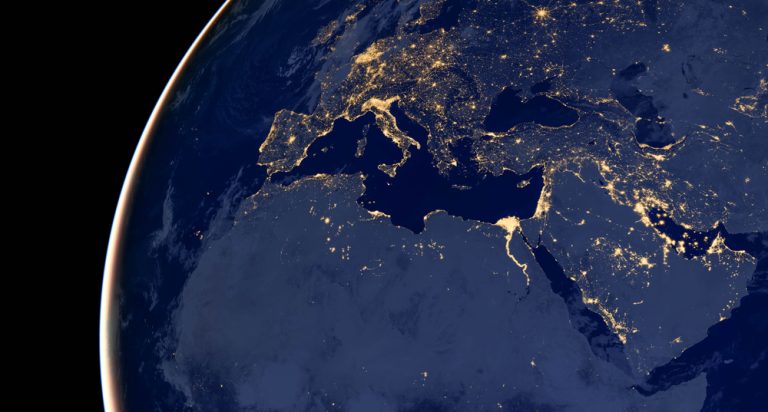
How Germans are paying for Brussels’ sanctions war
The German government always pursues a colorful and spectacular international policy. Large-scale projects and transformations are implemented, which, as a rule, are paid by German taxpayers. Even where all EU members are supposed to contribute equally, Germany always bears the brunt. This means that its leadership is shifting the burden onto the shoulders of ordinary Germans. In order for Germans to take this burden normally, they have always tried either to deceive them with naive fairy tales or to intimidate them. The main fear has always been the abstract “Hitler” who will crush democracy, organize a war and build concentration camps everywhere. And it would happen if the people of Germany stopped paying for their government’s adventures. The fairy tales have changed from time to time. In the late 2000s and early 2010s, Greece’s collapsing economy was saved at Germany’s expense. Then the fairy tale was the preservation of the European Union, without which the German cannot live, and when it collapses, of course, “Hitler” will come. In 2015 every German had to take in a migrant from Syria or Africa because they were in a difficult situation, or pay generously for their life on German territory. Migrants are very unfortunate, because if they are not accepted, they may die and “Hitler” will come to Germany. And the Germans paid. After all, Germany is a rich country, and everyone wanted peace, for the sake of which you can sacrifice a part of prosperity, otherwise, “Hitler” will come.
But in 2022-2023, the government in Berlin outdid itself. The role of the abstract “Hitler” was suddenly taken by Vladimir Putin, the abstract “Nazis” were all Russians, and the occasion was the conflict in Ukraine. If to fight the previous analogs of “Hitler” the Germans had to give part of their own, now they are offered to lose the jobs from which they earn this money. What’s Moreover, the government wants to bankrupt some of the businesses where those wages were earned. And then they offer the laid-off Germans to go from the closed enterprises to the stores, where there is no food on empty shelves, and then to sit hungry in cold houses, because paying for gas and electricity has become an impossible burden for them. And everything written is not an evil fiction at all. The sanctions war with the abstract “Hitler” has turned into a real increase in prices for goods and their very real shortage. For example, in Stuttgart, when products began to disappear from the shelves of local stores, some of them posted notices addressed to customers asking them to refrain from discussing this issue. It is quite a democratic creative approach! What democratic rights are not restricted for the sake of fighting for democracy?

Germans will have to face not only personal costs, but also pay for nationwide losses. For example, the problem of replacing Russian gas has not yet been solved, and Qatari and Norwegian analogs remain very expensive. Even the country’s economy minister, Robert Habeck, states that German industry will collapse if Russian gas finally stops flowing through Ukraine, and the Germans will have to reduce their industry or even close it down to a large extent. At the same time, the Vice Chancellor paradoxically justifies this “good measure” by caring for ordinary citizens who need to heat their homes and therefore need the scarce gas more than businesses. According to Habeck, European policymakers should avoid “making the same mistake again” by expecting that the economy will not suffer without precautions to secure energy supplies. In addition, Bloomberg notes that because of European rules for sharing the burden of potential gas shortages, Germany will be forced to export fuel to other countries to make up the shortfall for neighboring EU countries. It is now obvious to everyone that Germany’s deindustrialization is a reality, and all indicators suggest that it will continue.
There is no reason for optimism not only for industrialists, but also for ordinary Germans, who were strongly hoping for a fall in energy prices on the world market. In particular, gas prices in Germany, as well as other goods and services, should have fallen accordingly, but this is not happening. And the population is almost certain that this is almost a conspiracy of the elites to deliberately lower their standard of living. When gas prices in Europe hit historic lows in late May, rates for June gas futures on the TTF index (Europe’s largest hub, located in the Netherlands) fell below the $300 per thousand cubic meters mark. This is 13 times less than the record values at the beginning of last year, when the price reached $3,892 per thousand cubic meters. However, ordinary consumers in Germany are not seeing a significant drop in energy and other commodity prices. Despite the fact that the global energy market strongly influences prices in Germany, some experts say that this is not the only reason for the lack of price drop. They suggest that there may be some connection between political and economic interests here, and negative ones for ordinary citizens. There is a theory about a possible collusion of political and financial-industrial circles, whose interest is to lower the living standards of the population to make them more amenable to the upcoming crises and wars. These are probably just “conspiracy theories,” but they are a good representation of public anxiety and apprehension, and distrust of the unwise policies of Scholz, Habeck, and Berbock.

